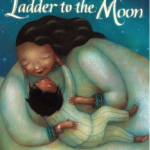She did what she could.
She acted.
She didn’t just think about acting.
She didn’t act out of obligation.
She didn’t let others act for her.
She didn’t wait to be invited.
–Elisa Morgan (in Refuse To Do Nothing)
The Patheos Book Club is currently discussing the new book Refuse To Do Nothing: Finding Your Power to Abolish Modern-Day Slavery. The book is a quick read focused on human trafficking throughout the world. While acknowledging the gravity and depth of the situation, the emphasis is on action. What can we, parents of small children, really do about the problem of child slavery, sexual exploitation of women and children, and human trafficking of all kinds? Quite a lot, it turns out. Some of my takeaway actions for pagan parents are:
- Buy fair trade products, particularly things like chocolate and coffee. Consider boycotting companies like Hershey’s, who have unacceptable responses to inquiries about the child slave labor used to produce their products.
- Don’t take pride in cheap—if something is an “unbelievable bargain,” odds are horrifyingly high that the manufacture of said item involved the use of slave labor.
- No porn (while this may conflict with the “sex positive” leanings of many pagans, I appreciate the authors’ observations: “It is intrinsically linked to the slavery of millions…we’re not saying that every woman striping or every man in a porn film is being held against his or her will, but there is no doubt that wherever sex is being commercially sold, there are individuals who do not want to be there” [p. 90]. And, “‘There may be a small percentage of women who truly choose to work in the commercial sex industry…but considering the average age when a commercial sex worker turns her first trick is between the ages of eleven and thirteen, then most commercial sex workers are victims…'” [p. 76]).
- Be mindful of where your tech products come from and what the supply chain is that supplies the minerals for their constructions—many minerals for cell phone production are mined in the Congo and an extensive network of enslaved child soldiers are responsible for obtaining and protecting these materials. This isn’t something that is fun to think about as we watch our sons playing games on their iPod, but the reality is that our purchasing power is being used to sustain a robust network of human trafficking and in this way we are directly responsible for it.
- Learn the number for the Human Trafficking hotline (888-373-7888) and use it if necessary—human trafficking takes place in many, many “average” cities throughout the U.S.
- Vote with your dollars by investigating purchases using Slavery Footprint and its associated cell phone app.
- Teach boys to respect women. Teach girls to respect themselves. Teach children of all kinds to respect each other. People matter, relationships matter. We need more conversations about the demand side of sex trafficking. We spend a lot of time worrying about those being bought and sold, we need to talk about the men who are buying.
- Make micro loans–poverty is major driving force behind human trafficking. My women’s circle keeps $50 continually moving via Kiva International to help women’s circles in other countries start or maintain their own enterprises.
- Call it like you see it—what used to be called “juvenile prostitution” is really “commercial sexual exploitation of children” and “pimps” are really “human traffickers.” What we are, “‘witnessing today is nothing less than international sexual terrorism against women and children at the hands of men, and little is being done to stop the carnage'” (p. 86).
- Let your kids see what you do with your non-mother time. Kids are paying attention to how you spend your time, energy, and money. They will notice when what you are doing takes a stand for human rights and social justice.
- Remember that you have relationship power—pagans are intimately familiar with the idea that we live in a relational reality, lets put this understanding into practice.
Refuse To Do Nothing: Finding Your Power to Abolish Modern-Day Slavery has a pervasively Christian tone/overlay. While this doesn’t match my own spiritual beliefs, I did find it refreshing to know that there are Christians working very hard on social justice issues that matter.
While the authors assume that human trafficking has its origins in “sin” and the best response is prayer, I would argue that the roots actual rest in long-standing patriarchal assumption of men’s right to colonize women’s bodies and to control sexuality and reproduction. Human-trafficking is part of a larger continuum of exploitation and domination of women rooted in society, religion, culture, politics, and history. The most appropriate response to my mind is not prayer, but instead a dismantling of any overt or covert religious sanction of the oppression of women, oppression that persists in deeply entrenched ways to varying degrees around the globe, including but not limited to:
- Female “submission” as desirable goal within fundamentalist Christianity
- Religious justification for reproductive control of women, including access to birth control.
- Purity culture (including associated assertions that women’s clothing is a “temptation” that leads men to stray. See Libby Anne’s blog for many fascinating explorations of purity culture)
- Denial of priesthood or ministerial roles to women
“The politics of the body began a long time ago. From the moment we were asked to believe that Eve was removed as a rib from the side of Adam theology became situated in the body. This is not a neutral belief, it has a number of consequences.” (Isherwood, in Reweaving the World, p. 74)
Patriarchy (and politics) in many ways rests on the ability to control women’s bodies and patriarchal religion may in fact have begun with the body. Today both remain seated in the body, with women’s bodies and control and restriction of them, continuing to serve as the terrain upon which patriarchal structures and ideas are built. “Why address sex and not economics when speaking about body politics? It is my contention that until we de-colonize our bodies we cannot successfully stage a revolution. Feminist ethics begin in experience and we rarely know what our experience is due to the layers of patriarchy that cloud over perception. We have a slim chance of changing this if we learn to trust our own bodies” (Isherwood, p. 80).
Shortly after finishing the book and considering my own ideas about the subject material, I read a wonderful post by Carol Christ at Feminism and Religion:
Patriarchy is a system of male dominance, rooted in the ethos of war which legitimates violence, sanctified by religious symbols, in which men dominate women through the control of female sexuality, with the intent of passing property to male heirs, and in which men who are heroes of war are told to kill men, and are permitted to rape women, to seize land and treasures, to exploit resources, and to own or otherwise dominate conquered people.*
Marx and Engels said that the patriarchal family, private property, and the state arose together. Though their understanding of the societies that preceded “patriarchy” was flawed, their intuition that patriarchy is connected to private property and to domination in the name of the state was correct. It has long seemed to me that patriarchy cannot be separated from war and the kings who take power in the wake of war…Lately, I have been trying to figure out why the Roman Catholic and other churches and the American Republican party are so strongly opposed to women’s right to control our own bodies and are trying to prevent access to birth control and abortion. In the above definition of patriarchy, I bring all of these lines of thought together in a definition which describes the origins of patriarchy and the interconnections between patriarchy, the control of female sexuality, private property, violence, war, conquest, rape in war, and slavery.
The system I am defining as patriarchy is a system of domination enforced through violence and the threat of violence. It is a system developed and controlled by powerful men, in which women, children, other men, and nature itself are dominated. Let me say at the outset that I do not believe that it is in the “nature” of “men” to dominate through violence. Patriarchy is a system that originated in history, which means that it is neither eternal nor inevitable. Some women and some men have resisted patriarchy throughout its history. We can join together to resist it today.
And, as Chellis Glendinning in Politics of Women’s Spirituality states:
“When women are faced each day with enforced cesarean deliveries, birth control that maims and kills them, and doctors who think them dirty, when we encounter rape, violence in the streets, job discrimination, sexual slavery around the world, pollution and nuclear madness, we realize that reclaiming the integrative ways of our ancestors must involve our healing powers on all fronts—from the medical to the social to the environmental to the political to the psychological to the spiritual. Healing the divisions that were imposed during the patriarchal era is the survival issue of our time and our planet. A world that systematically sickens its women cannot survive.” [emphasis mine]
Refuse to do nothing.

















